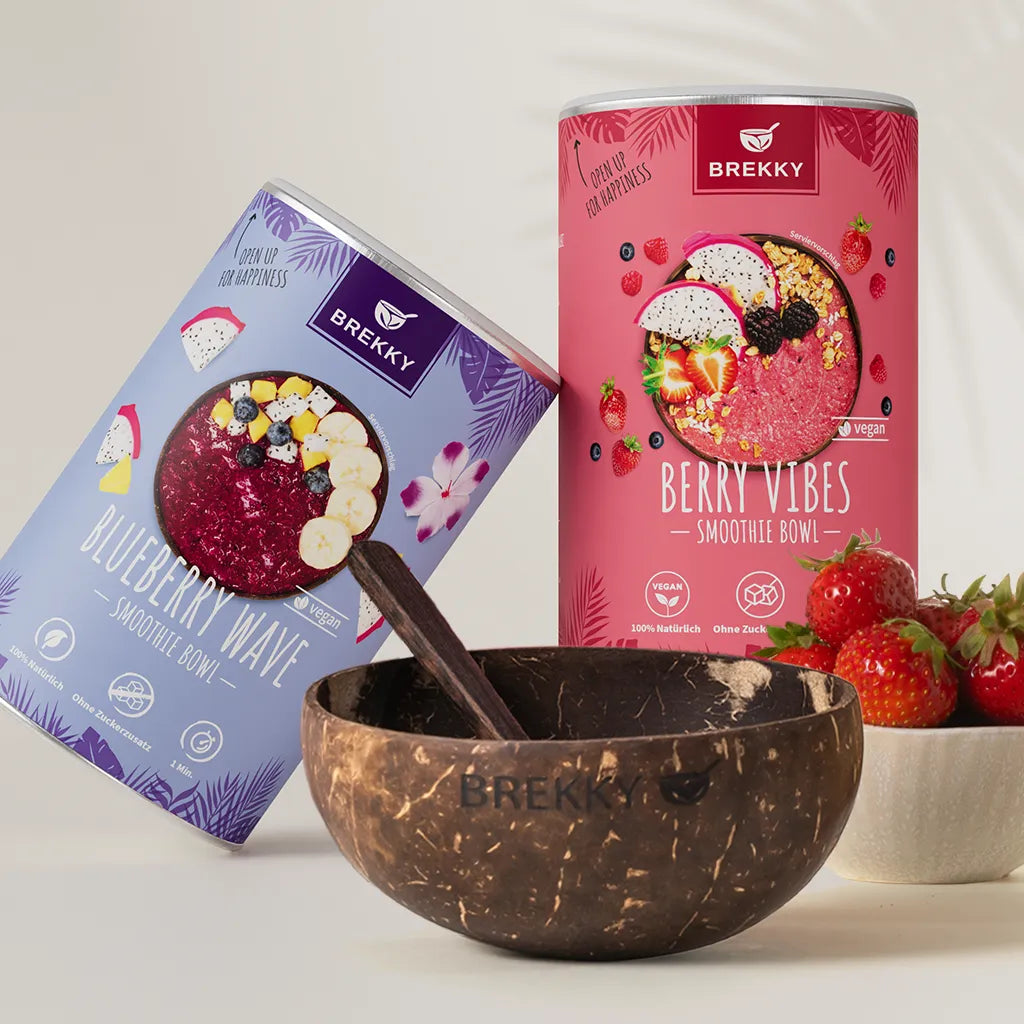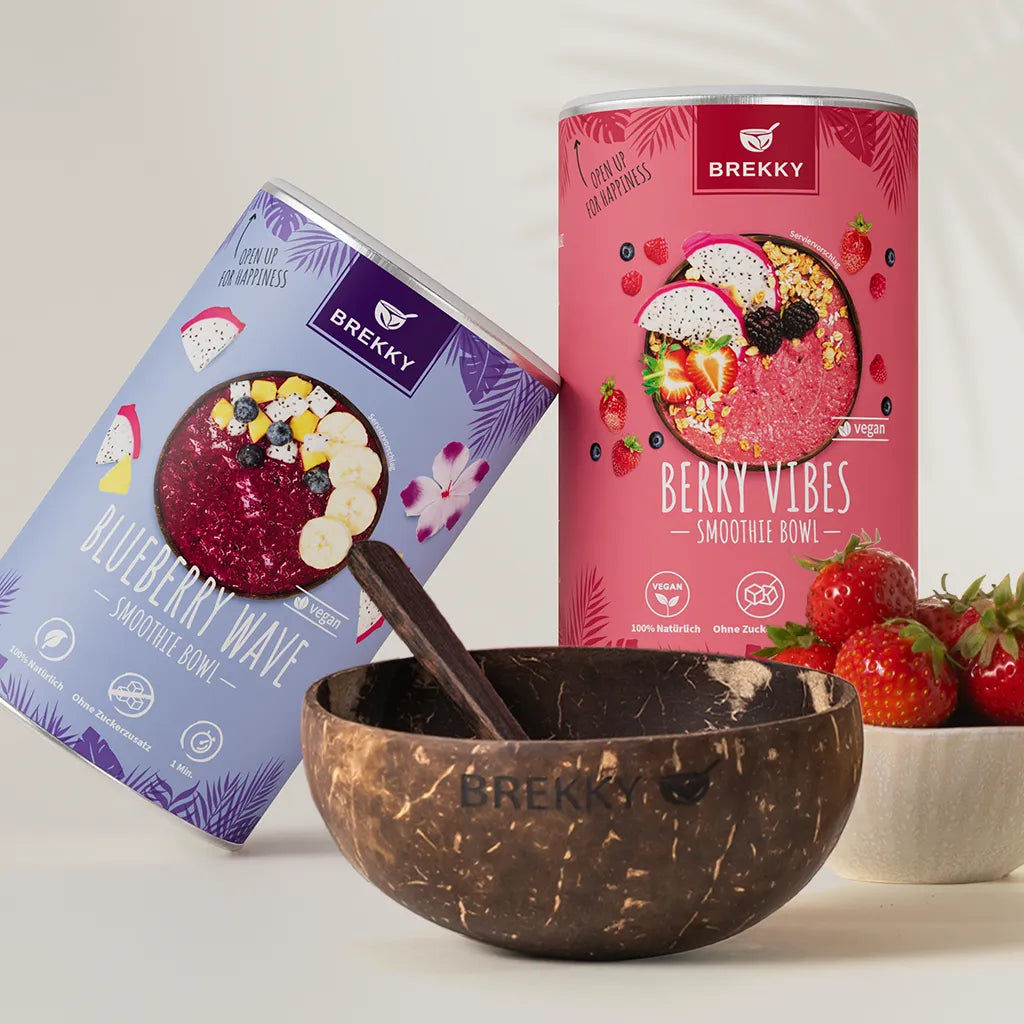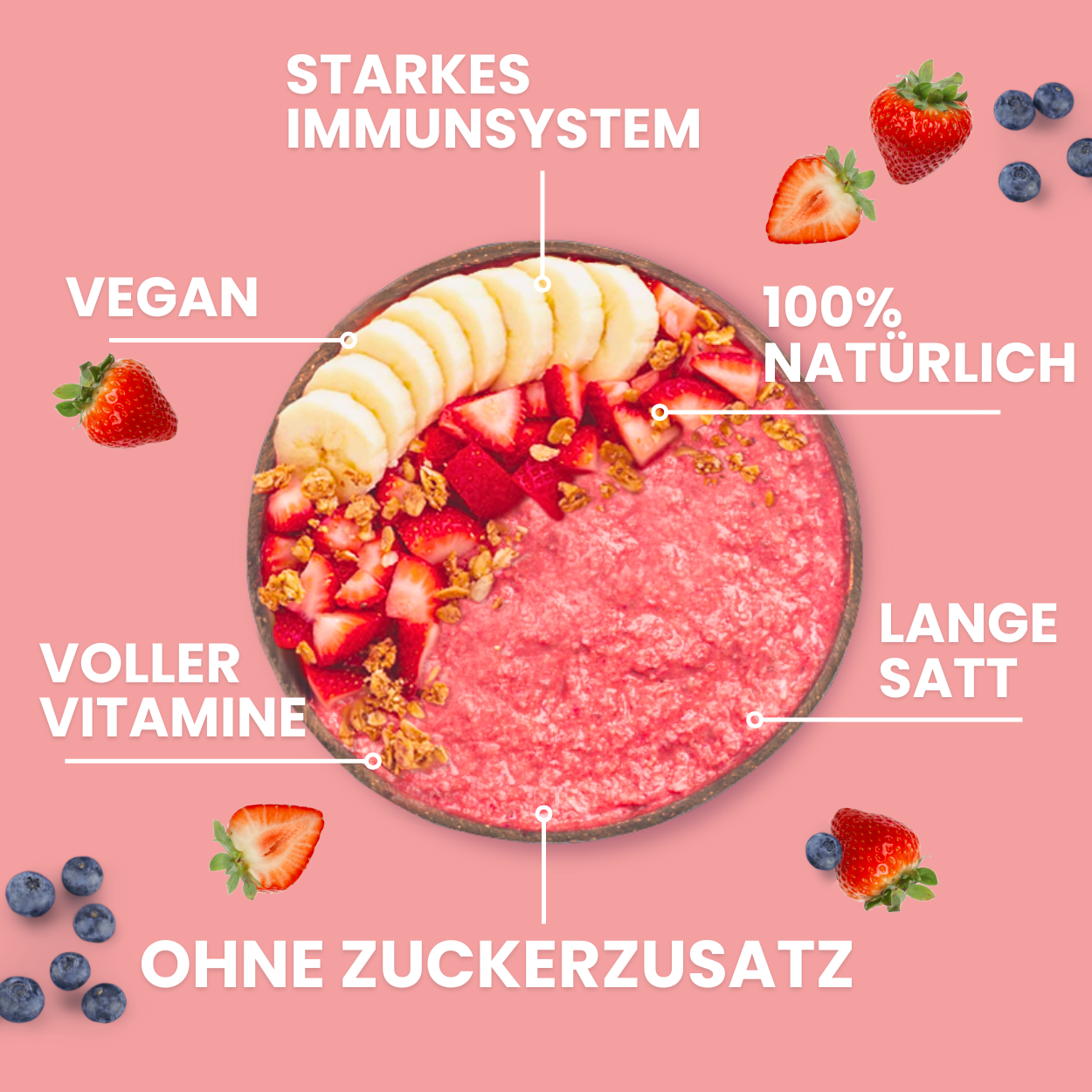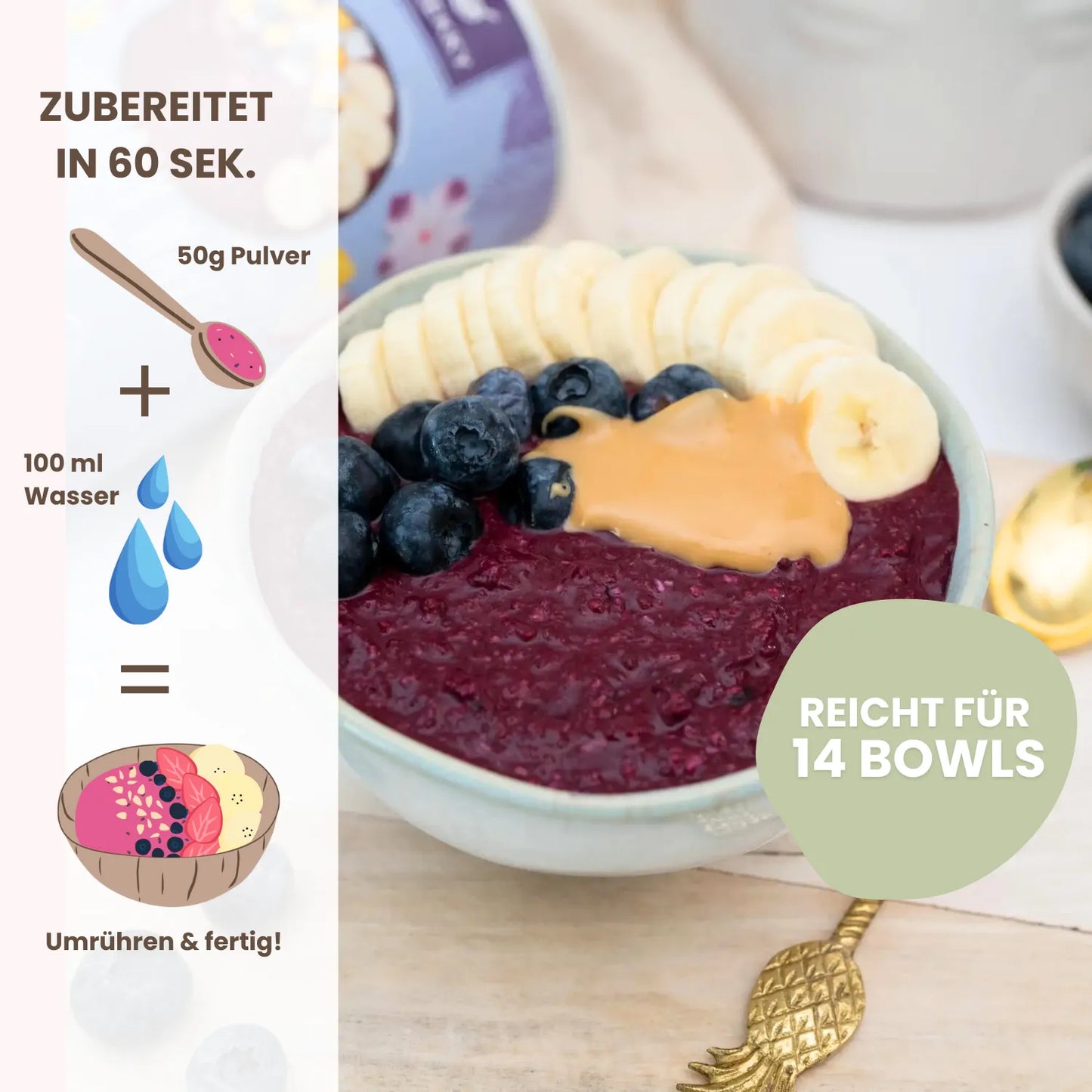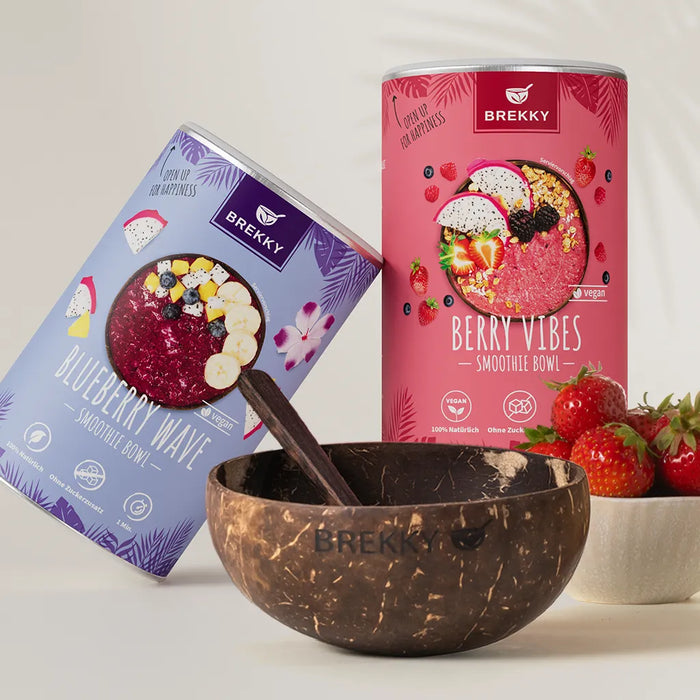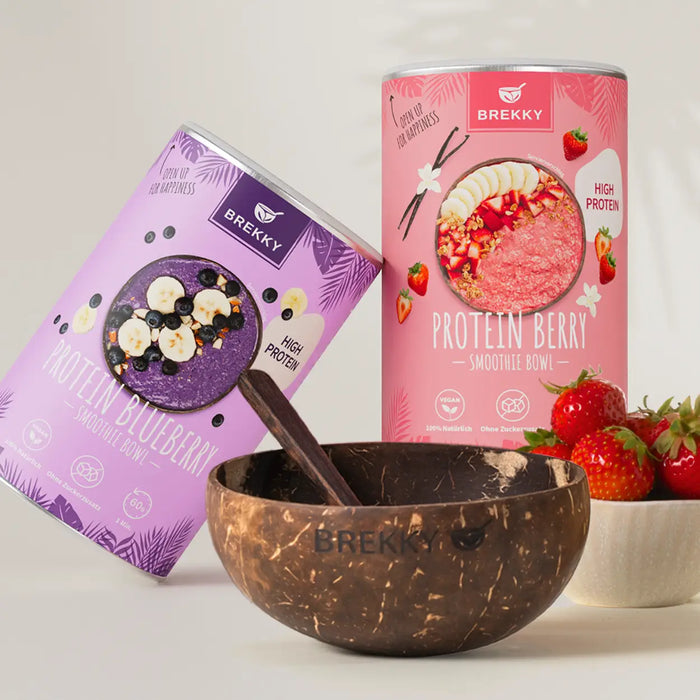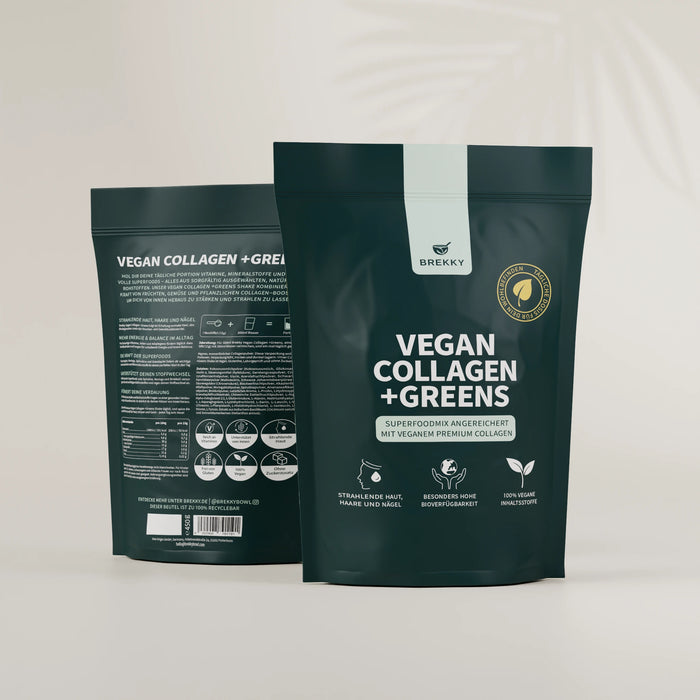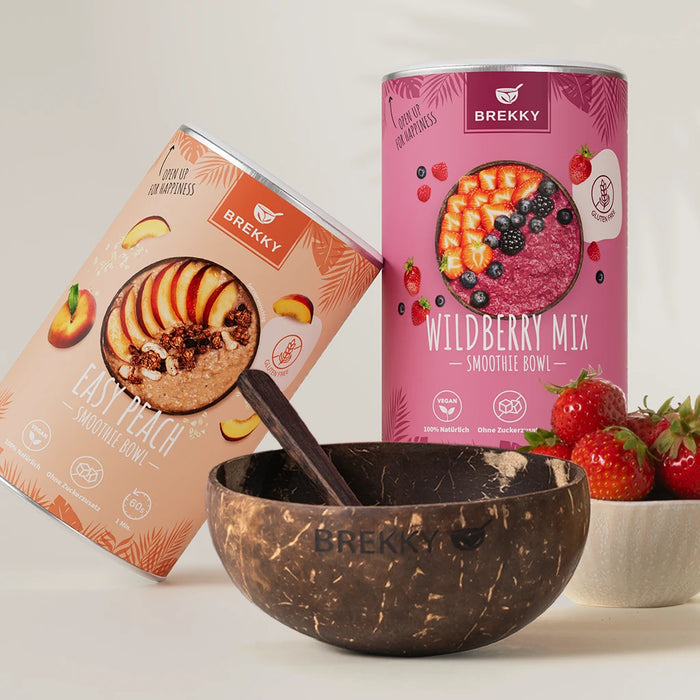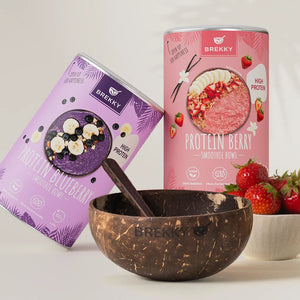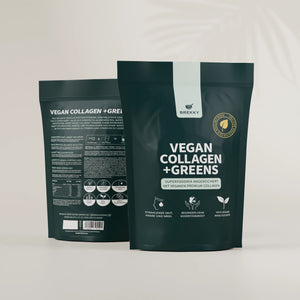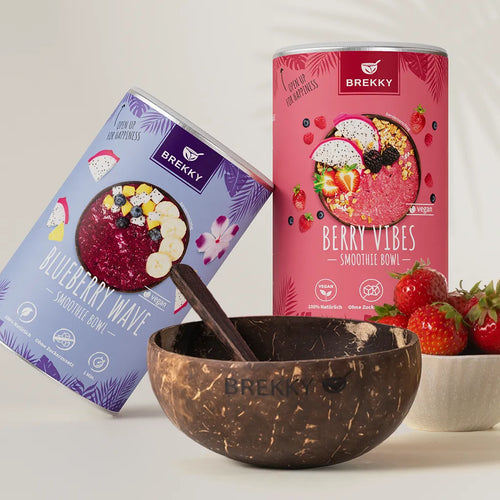Protein-rich breakfast for weight loss: How protein in the morning can support your diet
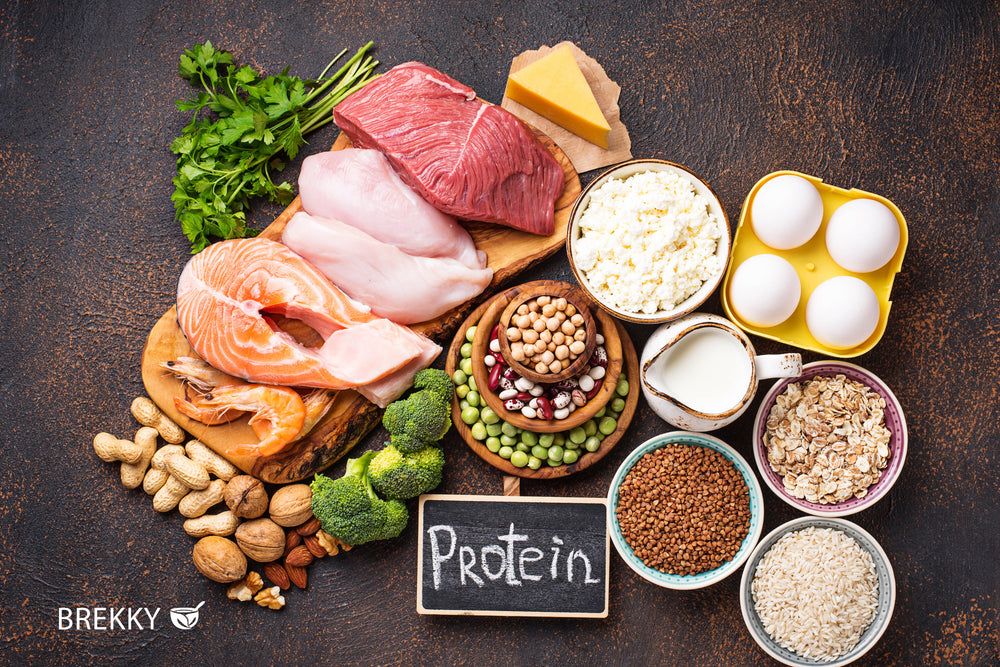
Another benefit: Eating protein for breakfast not only reduces cravings, but also boosts your metabolism. Protein requires a little more energy to be digested by the body. This means your body burns additional calories just digesting the protein-rich food. While this effect isn't huge, it can have a positive impact over time.
Protein also plays an important role in muscle maintenance and building. Even if you're following a low-calorie diet, you want to maintain muscle mass, as muscles burn more calories at rest than fat tissue. A protein-based breakfast provides you with the necessary amino acids to keep your muscles strong despite your diet. This ensures that weight loss results primarily from fat mass rather than muscle mass.
Even those who follow a food combining strategy or simply consume a few extra grams of protein daily can support their diet success. However, it's important that the protein breakfast consists not only of protein, but also has a balanced composition – vitamins, minerals, and fiber should also be included.
In this article, you'll learn why a protein breakfast is beneficial for weight loss, how much protein can be beneficial in the morning, and which simple recipes you can use to add variety to your breakfast. At the same time, you'll receive in-depth information on the scientific background so you can feel confident tailoring your breakfast specifically to the protein diet.
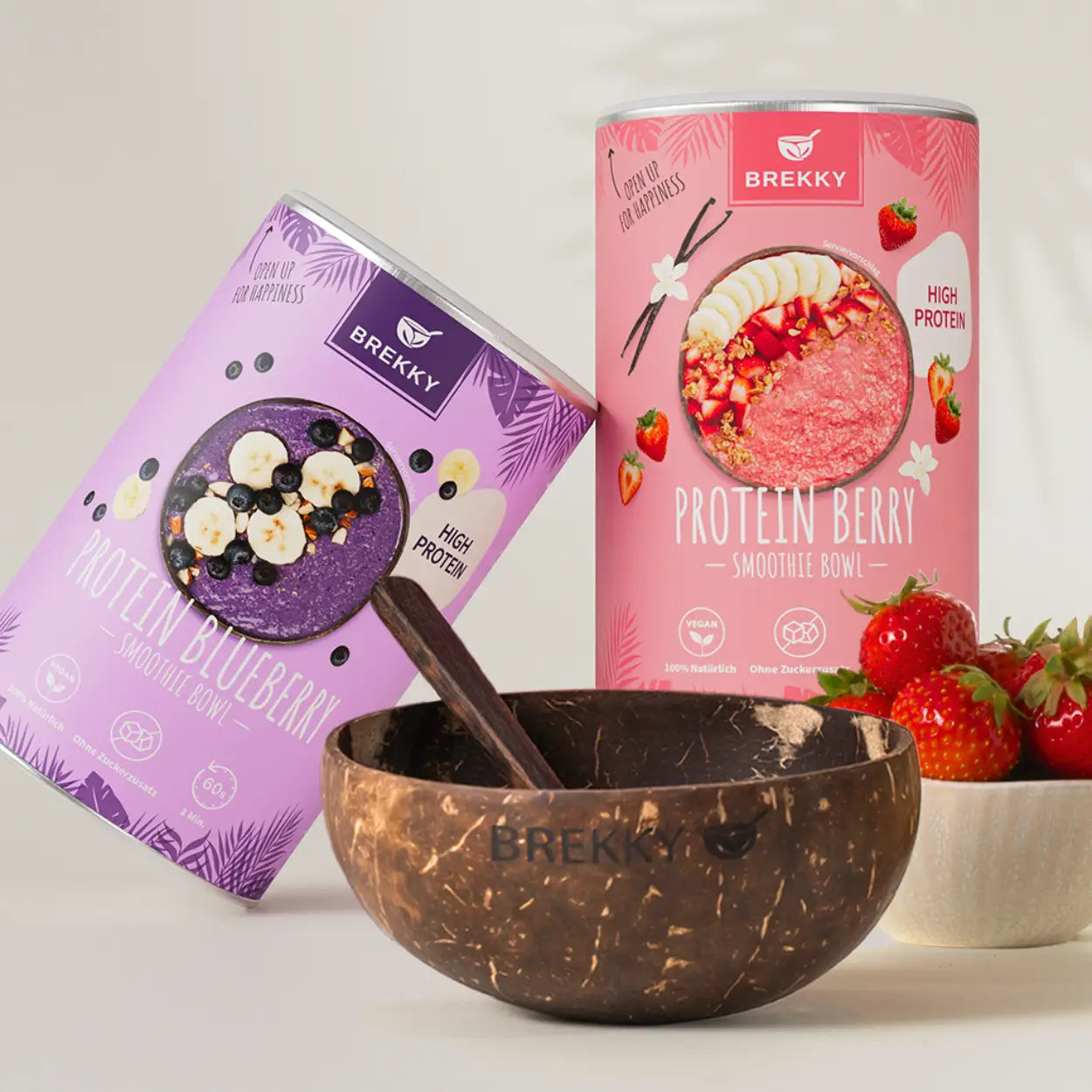
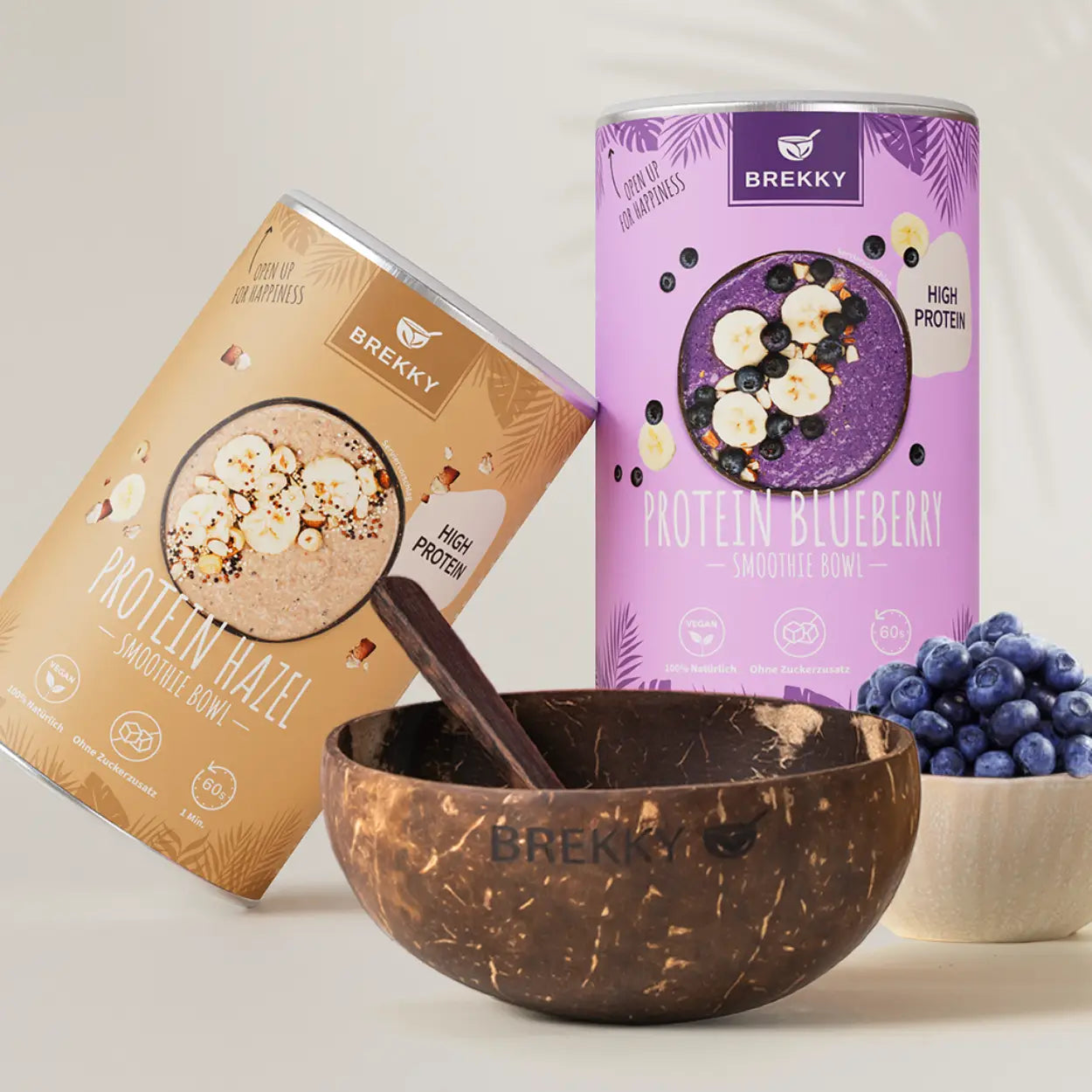
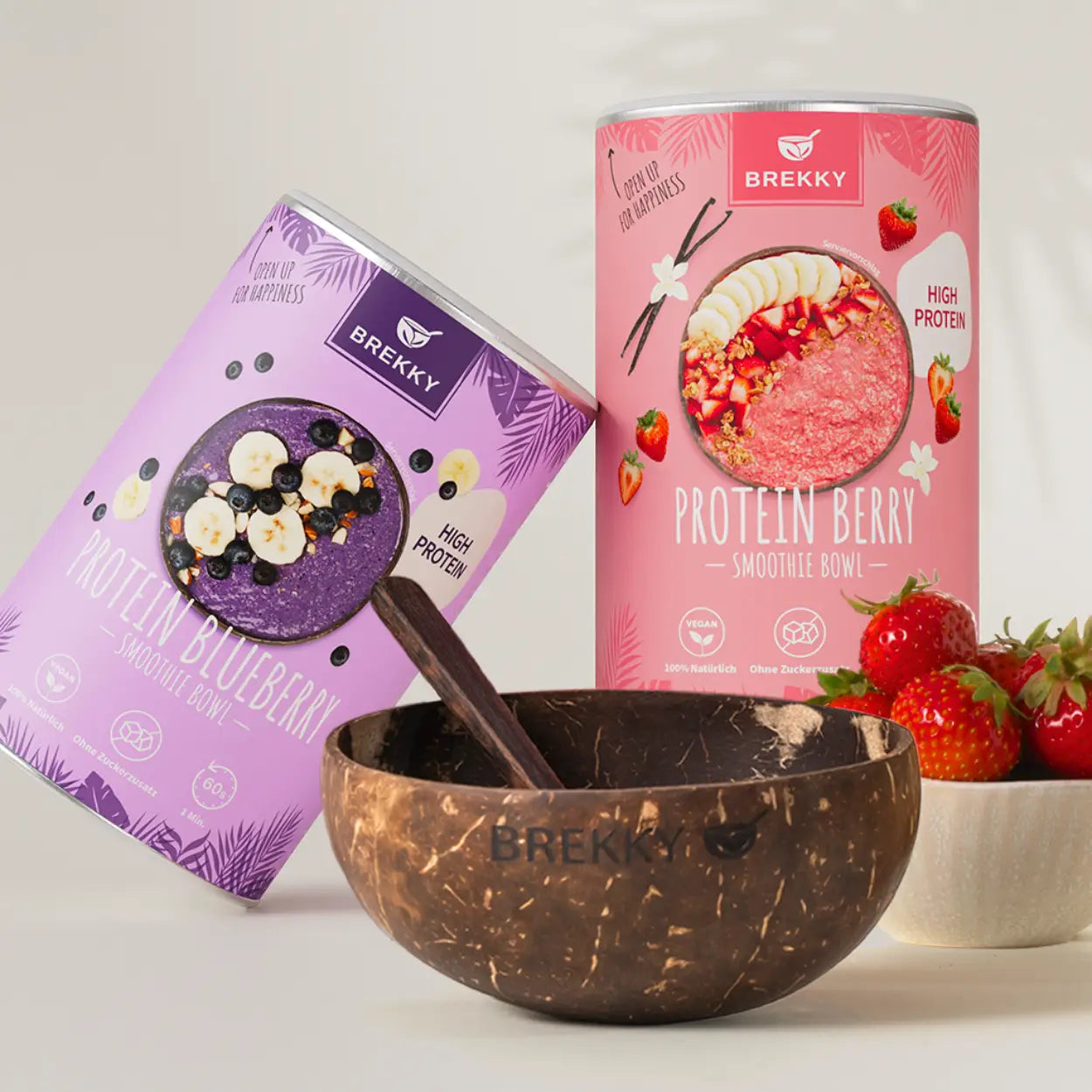
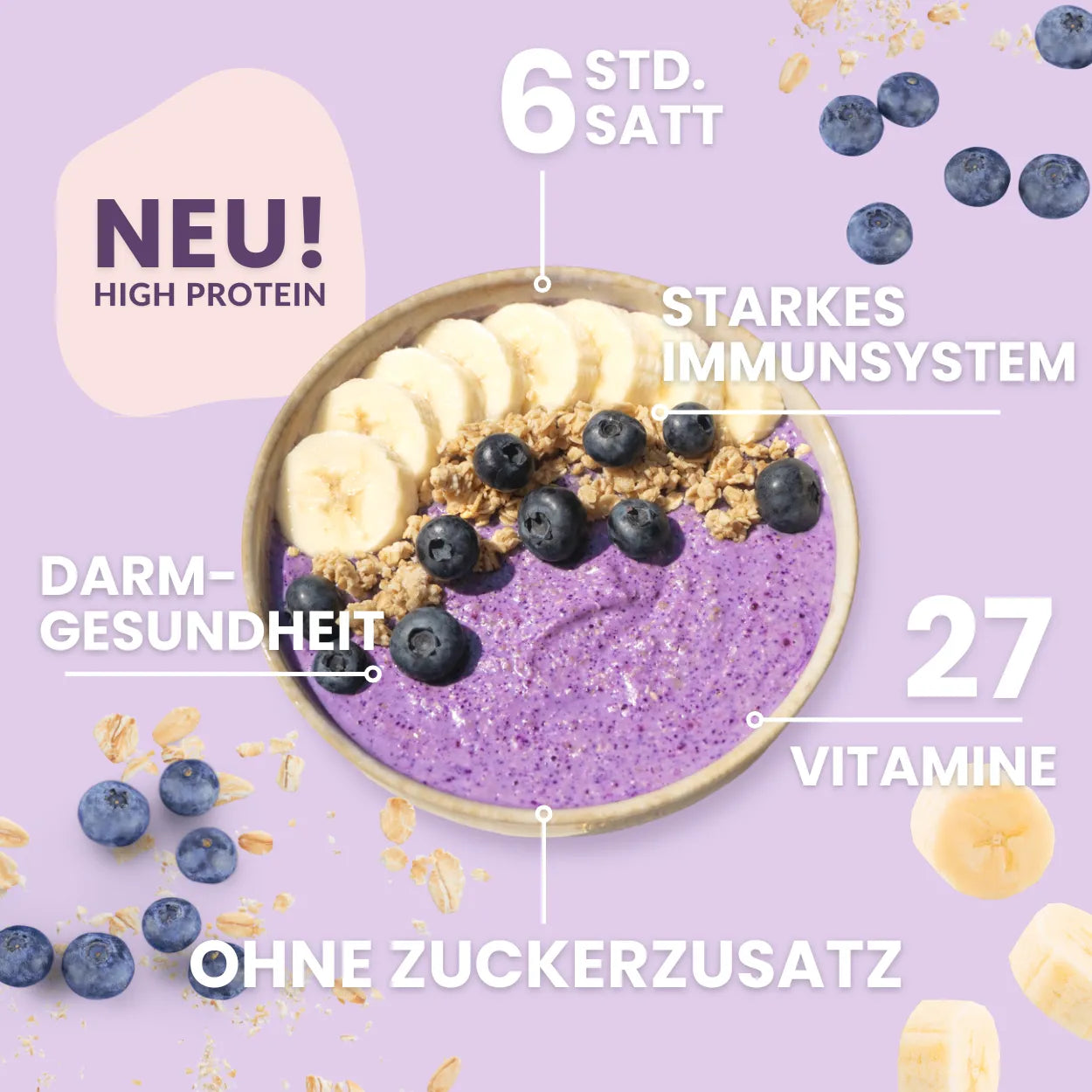
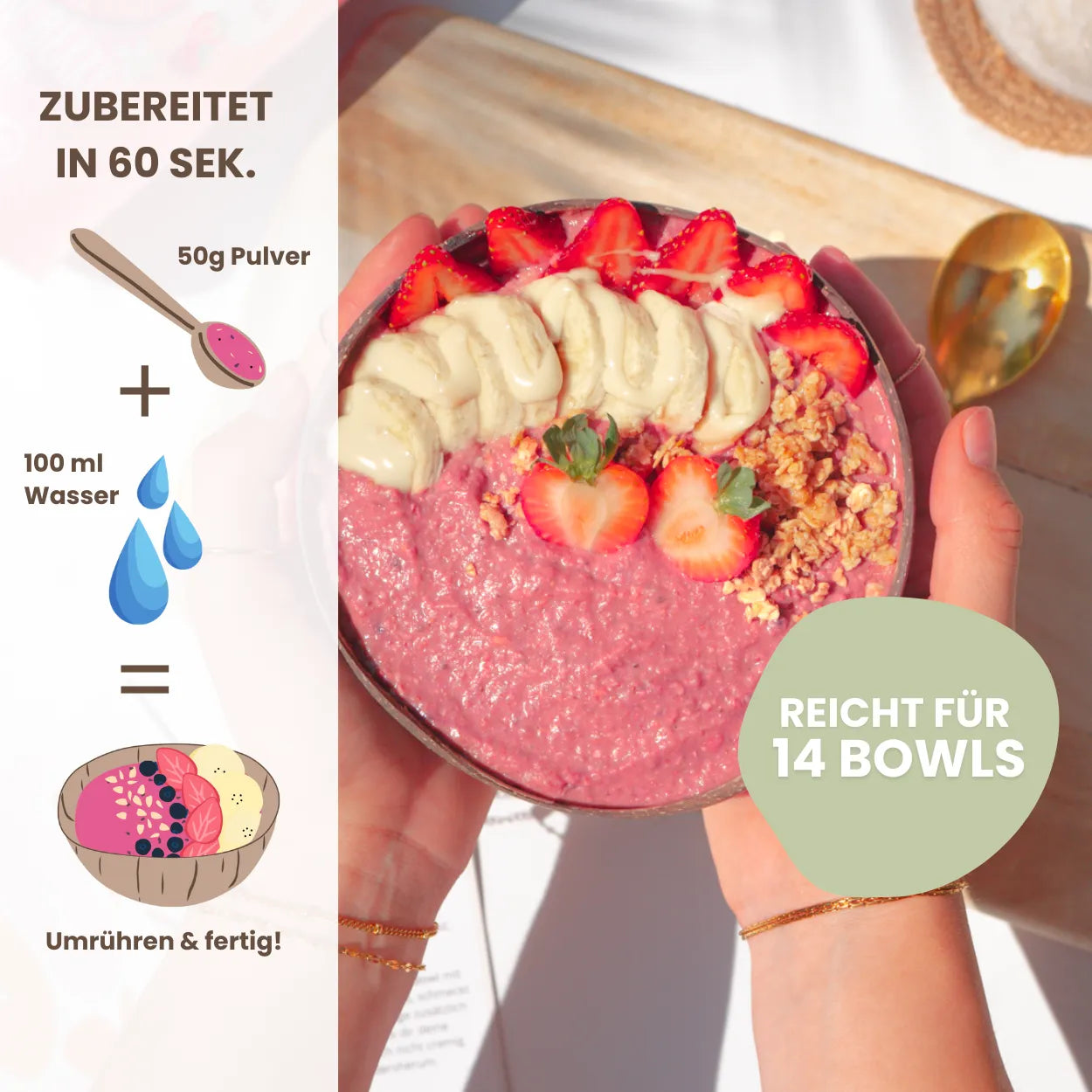
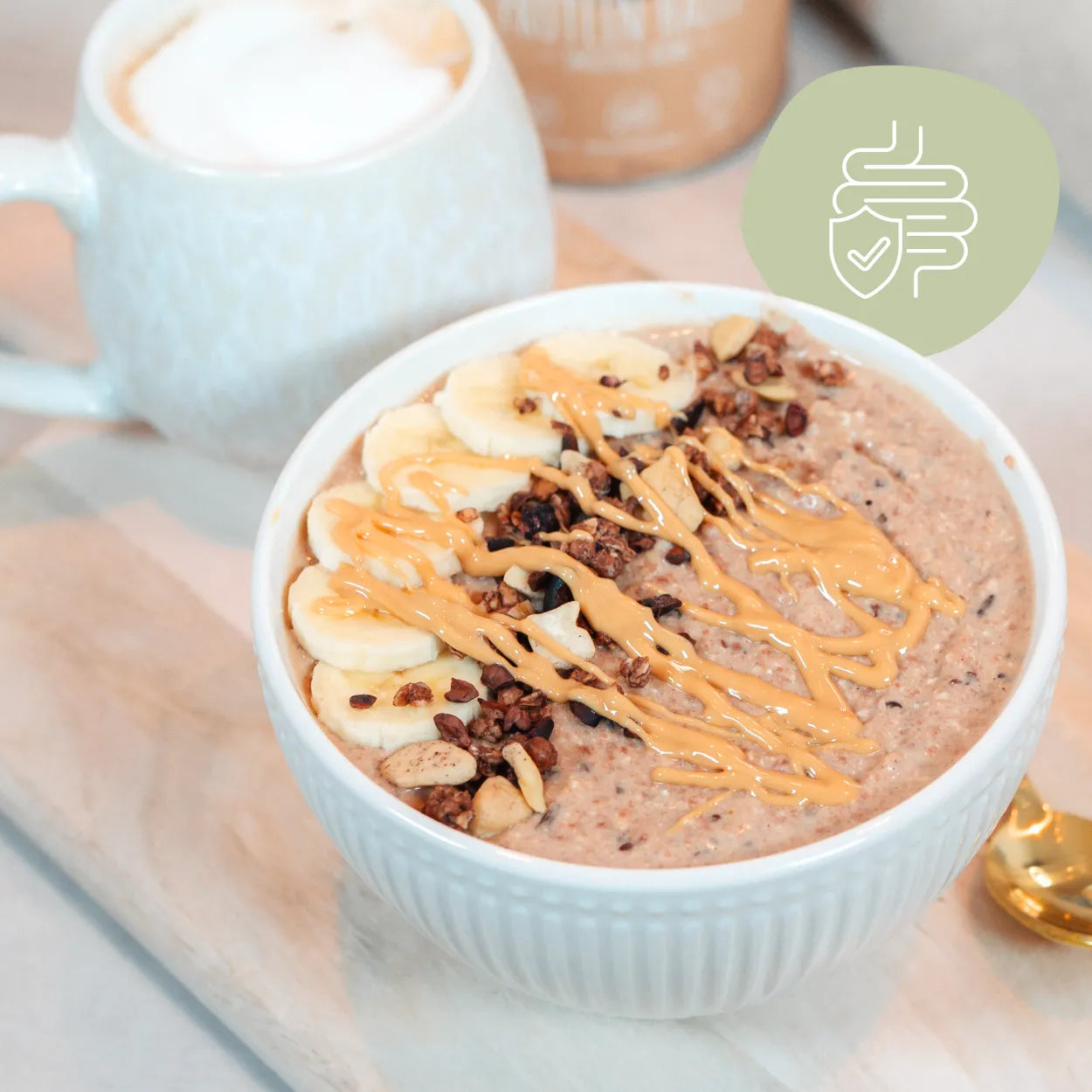


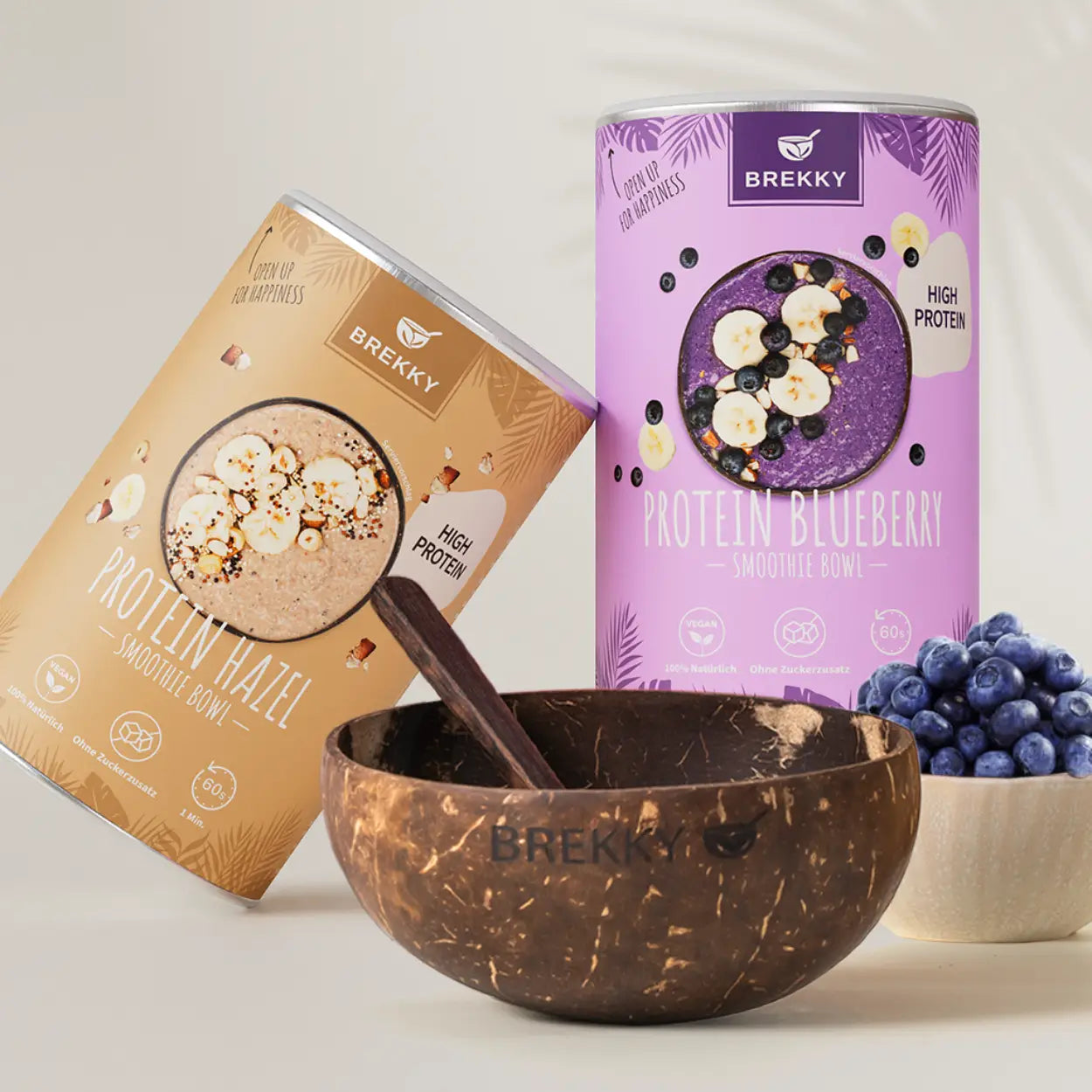
Contents
The scientific basis: Protein and weight loss

An important factor here is satiety. Protein at breakfast ensures your blood sugar level stays stable and you feel full longer. When you eat enough protein in the morning, the satiety hormone peptide YY increases, which can reduce your feeling of hunger. This prevents uncontrolled snacking and allows you to start the day more relaxed.
Additionally, a low-calorie protein breakfast helps your body maintain muscle mass. It's especially important during a diet phase that your muscles are adequately nourished. Less muscle mass can lower your basal metabolic rate, which would make fat loss more difficult. Eating a balanced protein breakfast also supports your muscle health.
In addition, the body requires more energy to break down proteins than carbohydrates or fats (the so-called "thermal effect" of food). This means that your metabolism is stimulated slightly more when you consume more protein. Of course, this effect isn't a free pass to consume unlimited amounts of protein. But it can at least provide a small advantage when it comes to weight loss.
The optimal amount of protein for weight loss
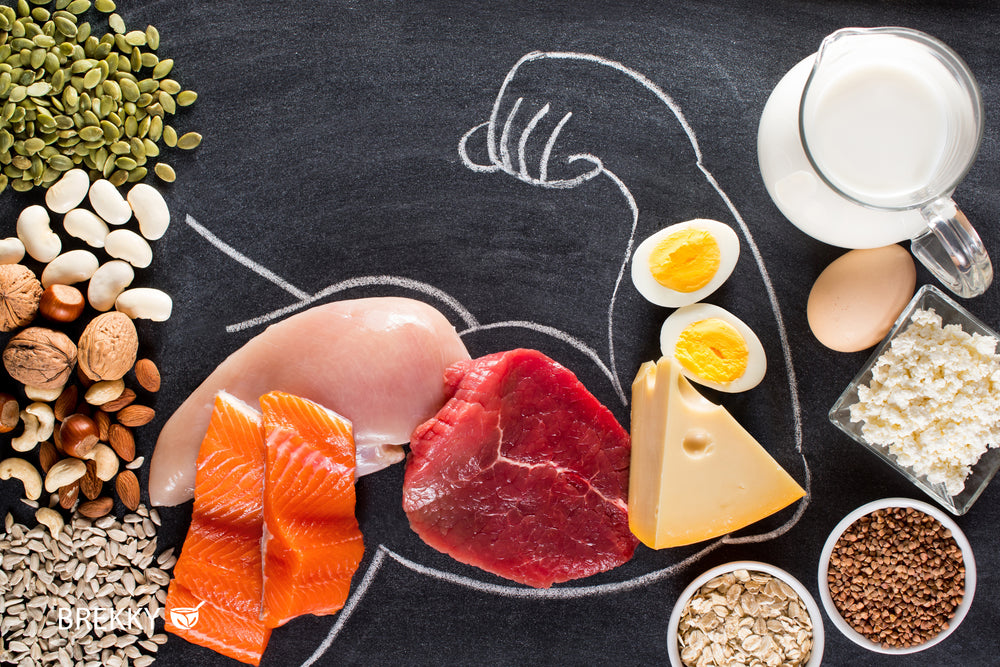
Differences depending on body weight and activity level
The optimal protein intake depends largely on your individual body weight and activity level. People who engage in intense exercise or strength training need more protein than those with sedentary jobs. As a rule of thumb, many nutritionists recommend 1.2 to 2.0 grams of protein per kilogram of body weight per day for those aiming to lose weight while maintaining muscle.
Distribution throughout the day
Just as important as the total amount is the sensible distribution of protein throughout the day. A protein-based breakfast provides a good start, but you should also ensure adequate protein intake at other meals. If you eat all your protein in the evening, you run the risk of feeling hungry during the day and then reaching for unhealthy snacks. An even distribution helps to boost your metabolism permanently and keep blood sugar levels stable.
If you're unsure how to create your protein diet breakfast, start by looking at simple foods like low-fat curd cheese, cottage cheese, legumes, eggs, or lean meat. This way, you can ensure your protein source is high-quality and also provides vitamins and minerals.


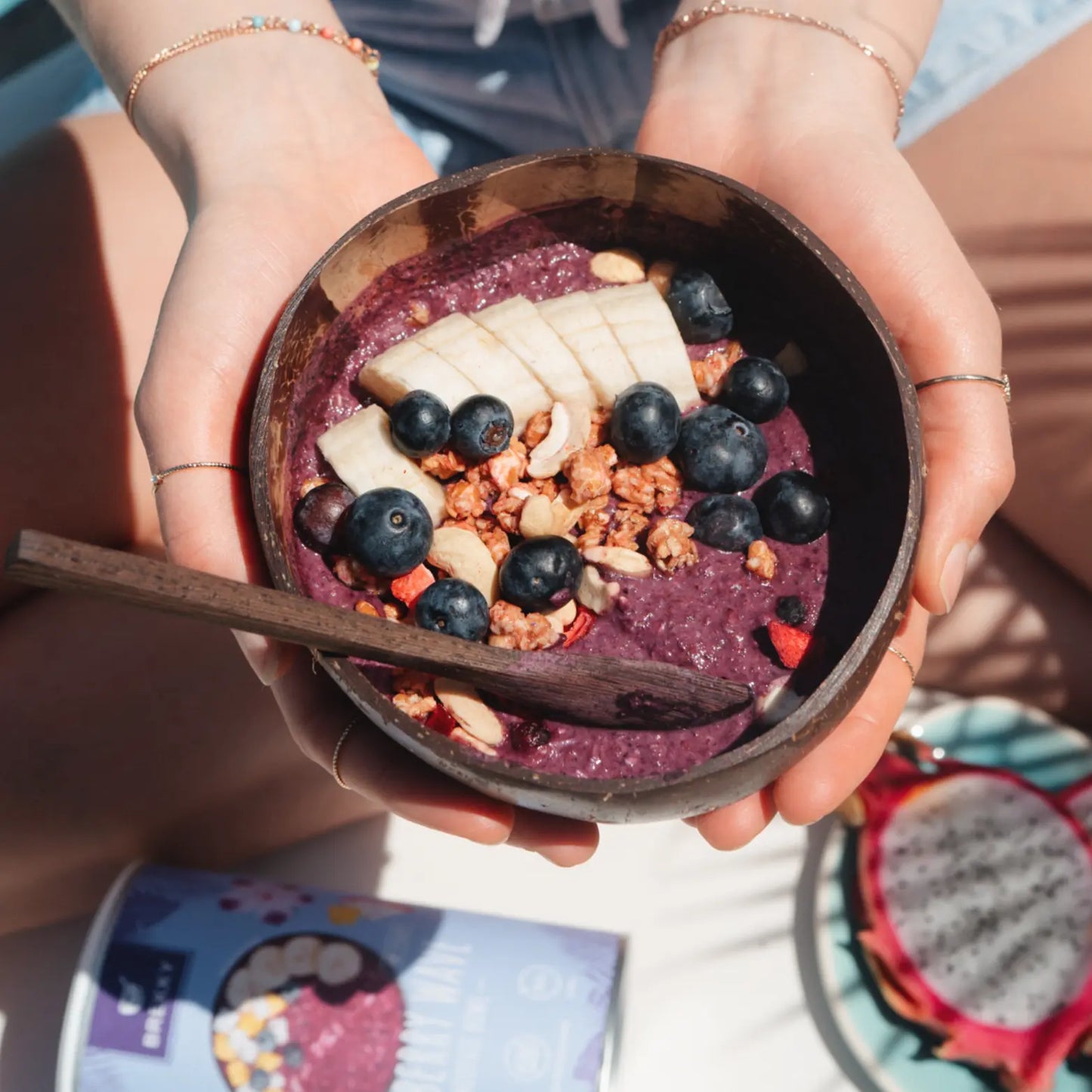


Low-calorie protein breakfast options
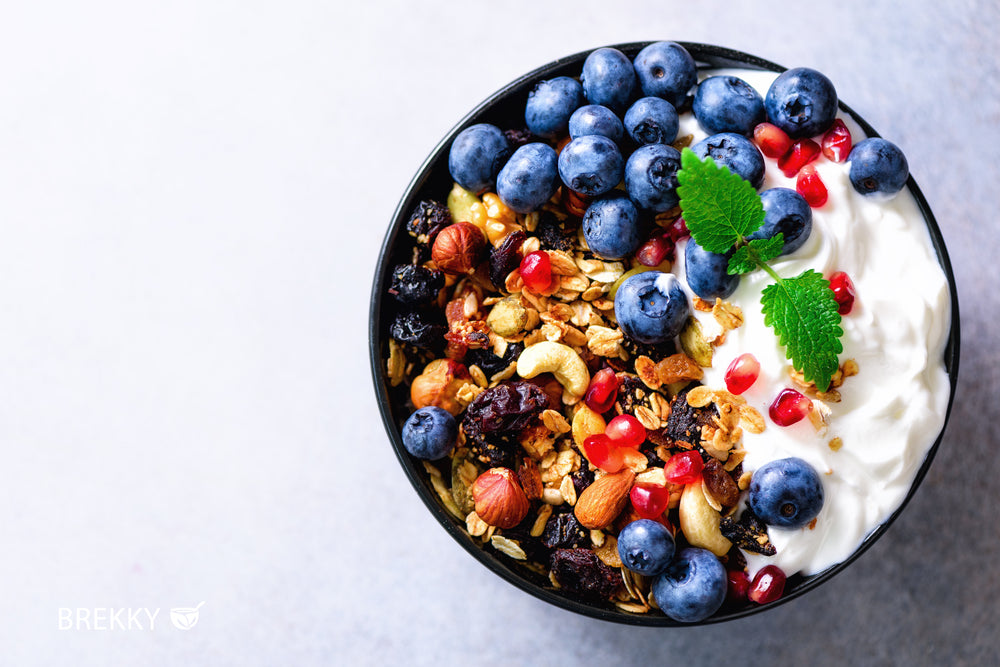
Low-fat quark with berries: Low-fat quark is a classic protein option. It's high in protein and low in fat. Combine it with a handful of berries—such as blueberries or raspberries—for natural sweetness and additional fiber.
Greek yogurt with nuts: Greek yogurt scores points for its higher protein content. Add a small portion of nuts like almonds or walnuts. This provides healthy fats and ensures long-lasting satiety.
Protein pancakes: A sweet alternative that also helps you lose weight with a protein breakfast is suitable: Replace some of the flour with protein powder or ground oat flakes and enjoy your pancakes with fresh fruit.

Scrambled eggs with vegetables: Eggs are an excellent source of protein. You can enhance your scrambled eggs with fresh vegetables like spinach, peppers, or mushrooms. This provides vitamins and is really filling without exceeding your calorie needs.
Cottage cheese on whole-grain bread: If you can't live without bread in the morning, choose a whole-grain version and spread it with cottage cheese. Top with a few slices of cucumber or tomato – and your low-calorie protein breakfast is ready.
What all these options have in common is that they provide relatively few calories while being high in protein. This way, you can enjoy a delicious breakfast that will help you achieve your weight loss goal.
Protein shakes as a breakfast substitute during a diet


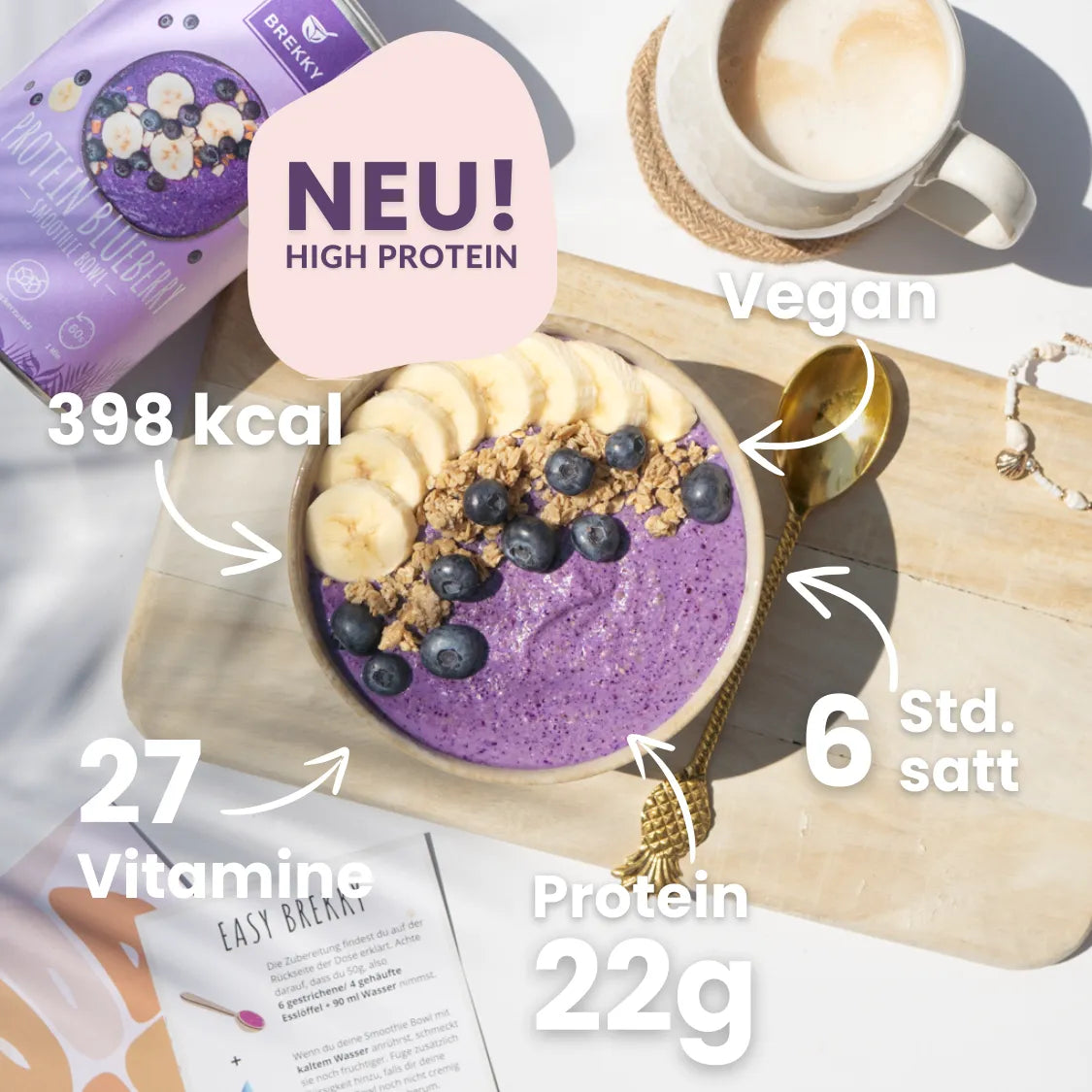



3 Simple Recipes for a Protein-Rich Breakfast to Lose Weight

Egg muffins with spinach and feta
Ingredients (for 6 muffins):
- 6 eggs
- 100 g fresh spinach (or frozen spinach, thawed)
- 50 g feta (low-fat version possible)
- Salt, pepper, herbs to taste
Preparation:
- Wash and chop the spinach (or thaw it).
- Whisk eggs in a bowl and season with salt, pepper and herbs.
- Crumble the spinach and feta cheese into the egg mixture.
- Pour the mixture into muffin tins and bake in the oven at 180°C (fan oven) for about 15-20 minutes until the egg muffins are golden yellow.
Advantage: These muffins are a convenient option for on-the-go and help you lose weight. You can enjoy them warm or cold and prepare them in advance.
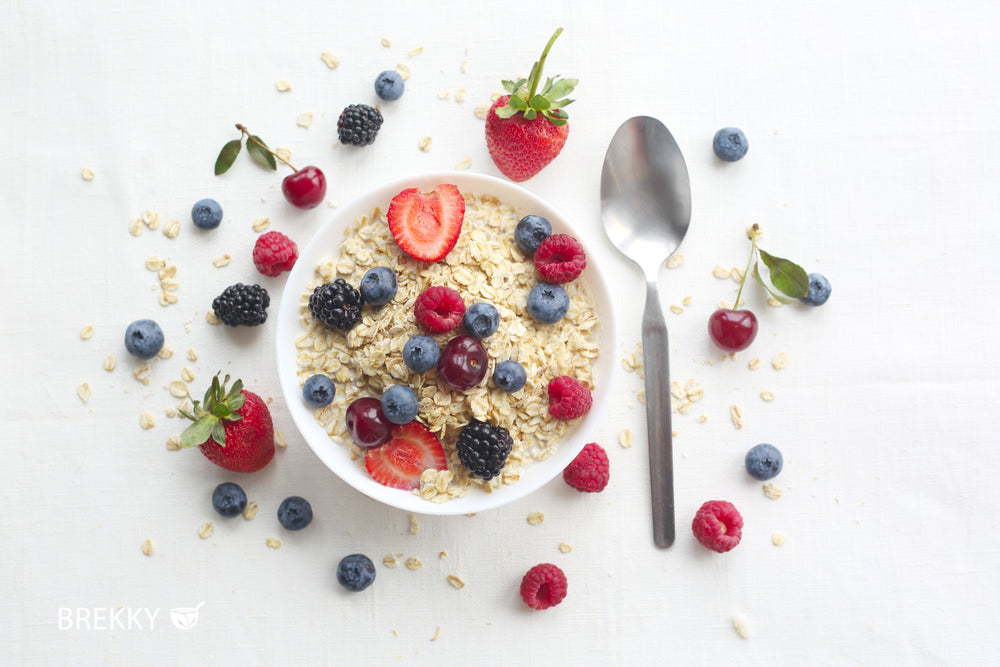
Quark porridge with linseed
Ingredients (1 serving):
- 40 g oat flakes
- 200 ml water or milk alternative
- 100 g low-fat curd cheese
- 1 tbsp flaxseed (ground)
- Sweetener to taste (for example, some honey, erythritol or stevia)
- Toppings: berries, nuts or pieces of fruit
Preparation:
- Boil oat flakes with water or milk alternative in a saucepan.
- Simmer for about 3-5 minutes while stirring until the consistency is nice and creamy.
- Remove the pot from the heat and stir in the low-fat curd cheese and the linseed.
- Sweeten slightly with honey, erythritol or stevia and garnish with fresh fruit or nuts as desired.
Advantage: This recipe is a quick and delicious option for a low-calorie protein breakfast. The low-fat quark provides additional protein, while the oatmeal contributes complex carbohydrates.
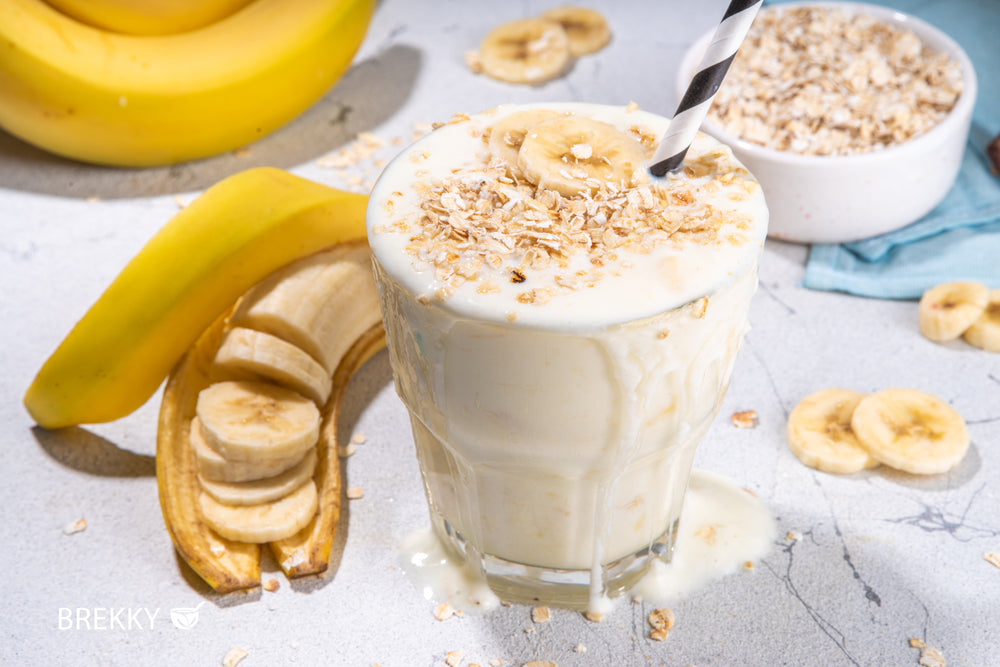
Banana Protein Smoothie
Ingredients (1 serving):
- 1 ripe banana
- 200 ml milk (low-fat cow's milk or plant-based alternative)
- 1 serving (approx. 20–30 g) of protein powder, e.g., whey or vegan protein
- 1 tsp peanut butter or almond butter (optional)
Preparation:
- Place all ingredients in a blender.
- Blend on high until you get a creamy smoothie.
- Pour into a glass and enjoy immediately.
Advantage: A quick shake that's perfect as a weight-loss protein shake for breakfast. Again, keep an eye on the calories and only use as much nut butter as fits your diet plan.





Protein breakfast on the go during the diet
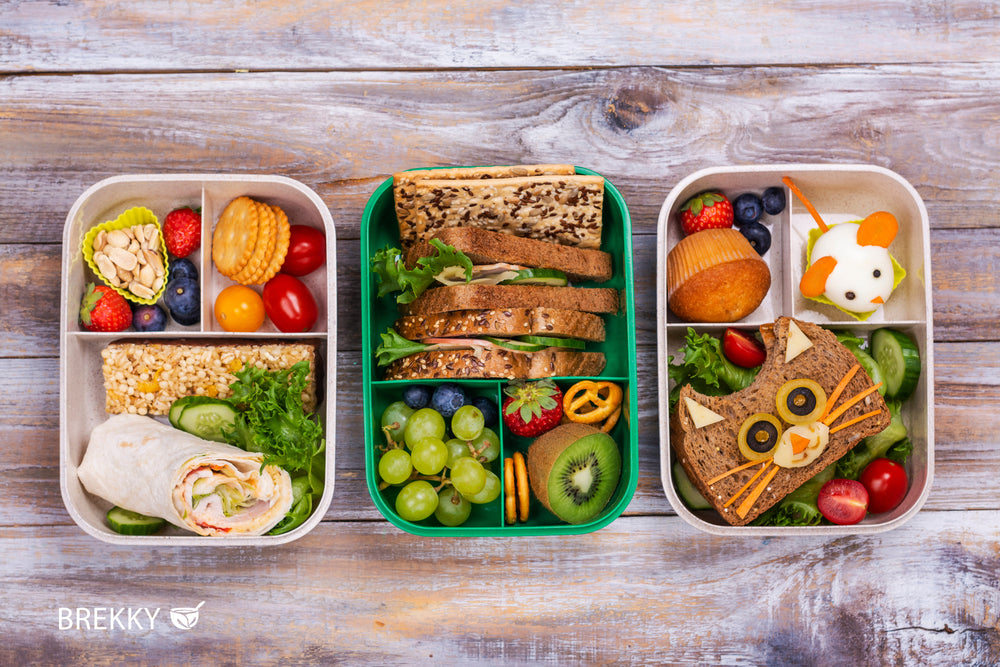
- Protein bars (homemade or store-bought): Make sure they're high in protein and as low in sugar as possible. Homemade bars with oatmeal, nuts, and protein powder can be a useful emergency solution if you make them at home.
- Protein smoothie in a shaker: You can pour the dry ingredients (e.g., protein powder, oatmeal, flaxseed) into the shaker the night before. In the morning, just add liquid and any fresh fruit, shake a few times, and you're done.
- Yogurt or quark cups: Pour low-fat quark or yogurt into a small container, add fruit, nuts, or seeds, and seal it. In the morning, you'll have a low-calorie, protein-rich breakfast in no time, which you can easily take with you.
This way, you can pursue the goal of a protein breakfast even during stressful times without having to spontaneously resort to high-calorie alternatives.
